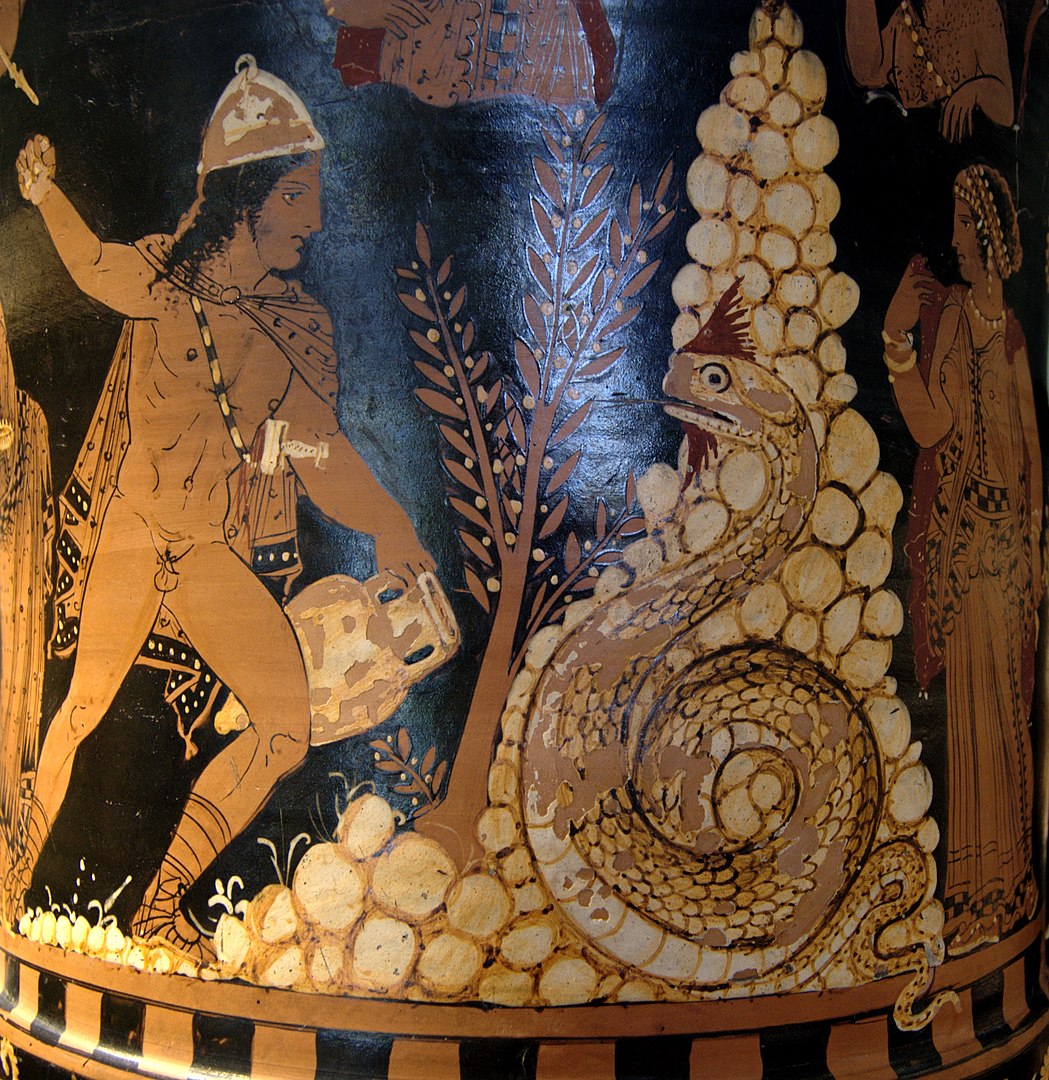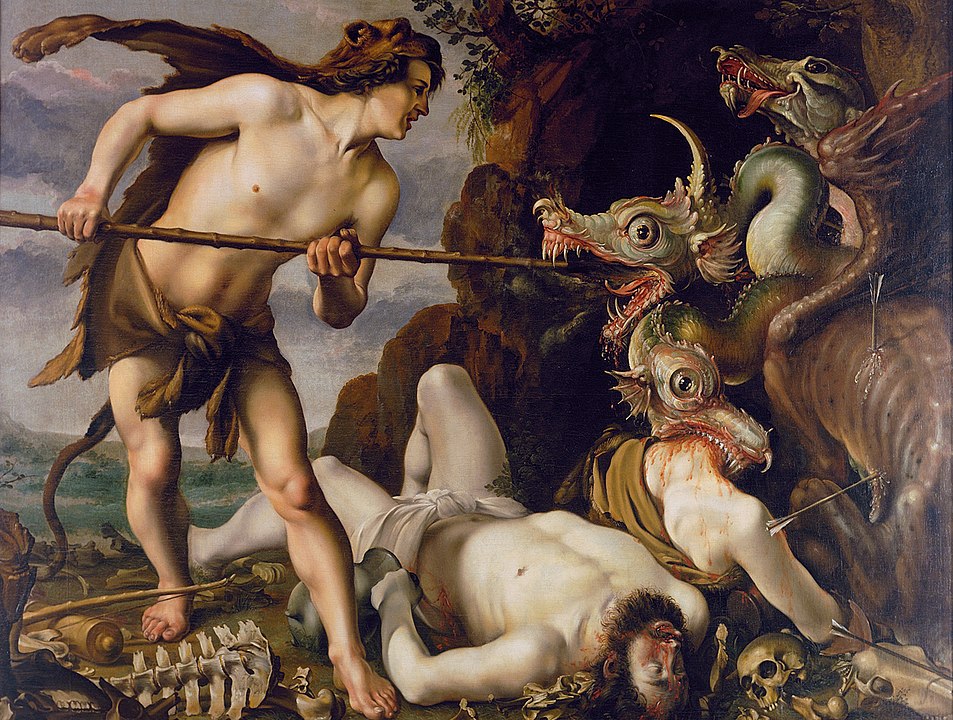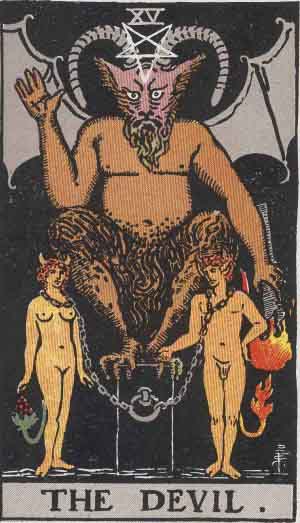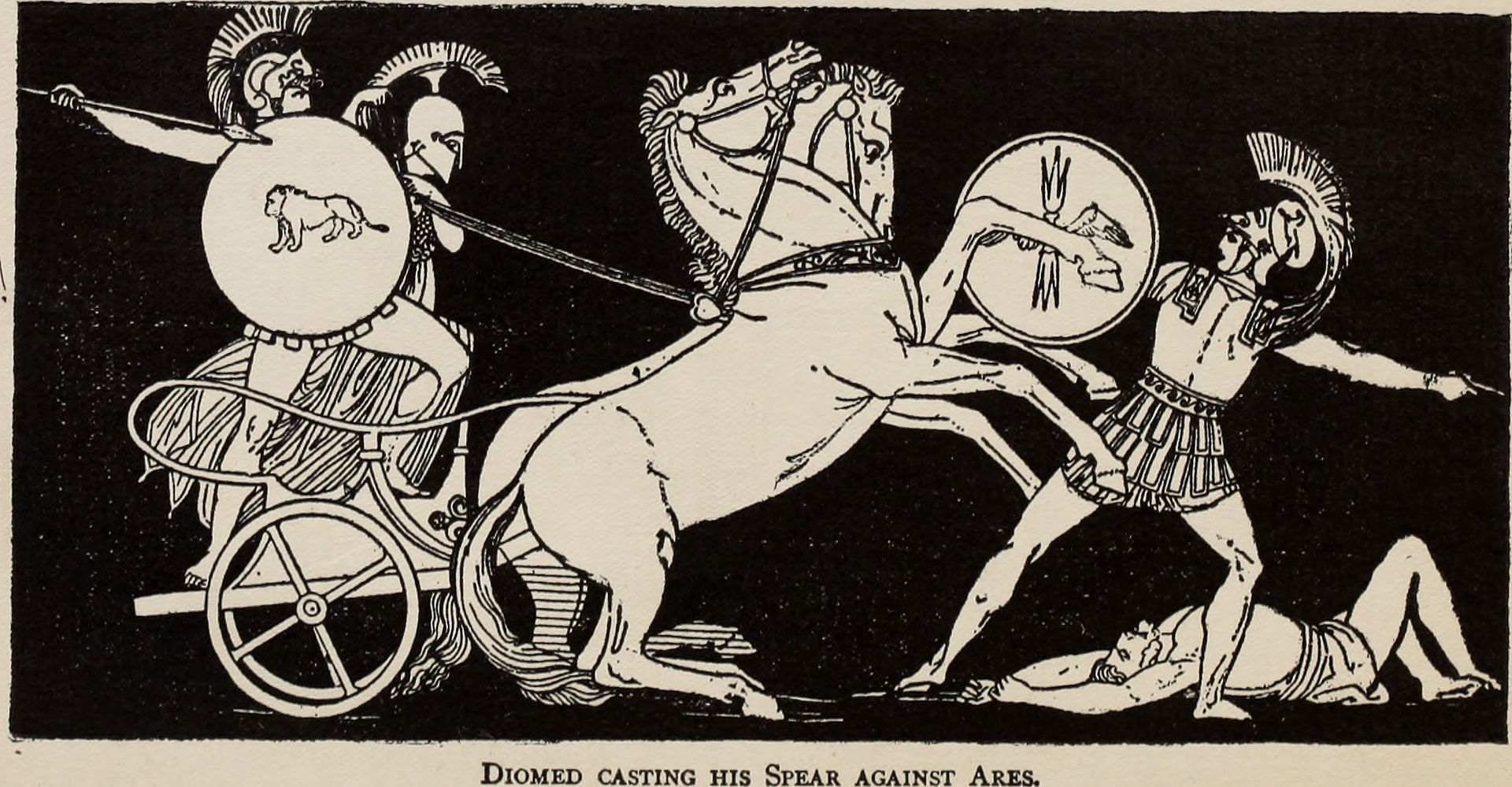
In part one of the mythology of Cadmus and Harmonia, I explained the psychological goal of our hero is to overcome the father complex.
His visit to the Oracle of Delphi at the Temple of Apollo revealed to us the Creator archetype. In Greek mythology, the positive attributes of this archetype are reflected in the Greek God, Apollo. The negative aspects belong to Aphrodite.
In this article, we meet Ares and Athena, the negative and positive attributes of the Warrior archetype. Athena also represents aspects of the Destroyer archetype and Ares is the positive aspect of the Hero archetype.
When the cow comes to rest at the banks of the River Caphisus, our hero sacrifices the animal to the goddess Athena.
The cow represents the feminine principles of intuition, patience, emotional nourishment and new beginnings. Thus by following the cow, Cadmus is actively seen to be following his intuition.
His willingness to build his own city reflects the hero finding his purpose in life. This relies on a degree of independence and is needed for psychological development. Here we see the archetypal energies of patience, emotional nourishment and the potential for new beginnings.
However, in order to for new beginnings to come to fruition, you have to overcome old patterns of behaviour. This is reflected in his desire to sacrifice the cow to the goddess, Athena in her archetypal role as Warrior.
The dynamic energies attributed to the Warrior archetype are courage, strong willpower, strategy, determination, persistence, and inner strength. The Warrior engages with life, remains focused and shows compassion when needed.
You may note that these qualities are all in contradiction to the mindset of the Father Complex. These are some of the qualities you need to develop to shake off some of the fragments of a father complex, particularly if you were not given the support a child needs to boost their self-confidence and self-esteem.
Athena also represents the feminine principle of inspiration.
When you are inspired to move forward with new plans you have to break out of the ego’s comfort zone. This will naturally create fear and anxiety – which must be overcome by calling on the courage and willpower of your Warrior energy.
As a prince, Cadmus is the ego that responds to the father complex program. By stepping out of his comfort zone he is about to pass through a stage of psychological development. You may remember from part 1 of Cadmus and Harmonia that I mentioned a prince in mythology represents awakening consciousness.
However, before Cadmus can make his sacrifice, there is one more challenge to overcome. His decision to make the sacrifice is merely the conscious mind reaching a moment of self-realisation. He now has to put knowledge into action.
The sacrificial ritual of the cow must be performed with water (unconscious content/inner wisdom). Cadmus dispatches his men to fetch water from a nearby spring.
Unknown to the hero, the spring of Ismenos belongs to the god Ares and is guarded by his demonic son, the Ismenian dragon, a deadly serpent.
When his men fail to return from the spring, Cadmus goes in search of them. He finds their bodies ripped to pieces. Confronted with the serpent-dragon, Cadmus hurls a boulder and stuns the beast. He then kills the beast by piercing it with his lance and impaling it against a tree.

When Serpent-Dragons appear as demonic creatures, they represent all the subconscious programs that do not serve your self-development; negative thinking, destructive behaviours, limiting beliefs, low-quality emotions and actions etc. In short, your demons and delusions.
The lance is a symbol of overcoming (*or inflicting) emotional suffering. In other words, releasing repressed emotions.
*When the hero is wounded by a lance, such as the Fisher King in the Grail myths, the meaning is to be emotionally wounded.
My personal dragon was the need to be right. Since the age of 15 or 16, I’ve been aware that the aristocracy and political system pollutes society and make false promises. The wealthy and powerful oppress good people. However, none of my friends agreed and discussions around politics always left me frustrated.
What I came to understand is that being right doesn’t really matter. Beliefs and opinions are attachments, and as Buddha Guatama points out in the Four Noble Truths attachments are the cause of all suffering. They will only bring disappointment, frustration and other negative reactions that poison your body.
A revolution that rises up against the system is not what we need. Nor do I need to prove that my insights were right even before we had the internet. The best solution is to change your inner world. When you achieve this, the experiences in your own little corner of the outer world changes also. You have fewer conflicts and find inner peace.
After slaying the dragon, Cadmus is said to have served Ares for eight years. Here we find more important symbolism in relation to overcoming the father complex. As you will discover, Ares is central to the myth of Cadmus and Harmonia.
Although Cadmus slays the dragon, it should be noted that the beast is only the offspring of Ares and not the god himself. This means he has overcome some of the psychological damage represented by Ares, but not all of them.
In this part of the story, as in many other Greek myths concerning the God of War, Ares represents the negative Warrior archetype. His positive qualities are represented by the Hero archetype; loyalty, dedication, bravery and bonding.
But before we continue with Cadmus’ mythical journey, let’s take a brief detour and outline how to identify a father complex. Ares, detested by Zeus, is a good example of the father complex in Greek mythology.
Modern psychology recognises the father influences children in six ways. His role in the upbringing and psychological development of a child is to:
When a father is absent from a child’s upbringing, emotional neglect becomes a subconscious program. A child that experiences emotional abandonment grows into an insecure adult with little self-worth, self-confidence or self-esteem.
When a father does not give his child emotional support through encouragement, acknowledgement and praise, the subconscious program is “I am not good enough” or more precisely, “I am not worthy and have little value to offer the world.”
As an adult, this program dominates how you value your relationships with yourself and others.
If emotional abandonment is not addressed, there is a higher risk that you suffer from a lack of self-care – and subsequently a lack of self-love. Without self-care and self-love, you cannot begin to cultivate self-worth in its truest sense.
People that do not value themselves generally adopt irrational and destructive behaviours, act recklessly, have delusions of grandeur and are prone to self-sabotage.
They often want to prove themselves to others. This may manifest as boastfulness, arrogance or reckless behaviour. It’s not uncommon for people to believe they can do things that are outside their capability and are subsequently left humiliated, frustrated and angry.
The father complex also manifests in people that fiercely object to patriarchal states of government. A father complex can pre-ordain an individual to distrust authority in general.
People that see the patriarchy as a war-mongering machine that promotes violence, domination, and subjugation feel rage and resentment towards the system.
This is also what is happening in their inner world.
Herein lies my problem. The only thing that bothers me these days is the corruption among politicians, bankers, corporations and elitist families. The oppression is blatantly obvious, but we turn a blind eye to it. Everybody suffers because of mass ignorance.
I know I need to change my views – and subsequently how I feel about the people in Power. Essentially, there is nothing I can physically do about it in the outer world. There is, however, a few tricks I can call upon to change my inner world and upgrade my subconscious programs.
Like Cadmus, I have to build a new city; and that involves developing a new system of belief that supports my mental and physical health (more on that later).
This is my challenge; to liberate my mind and rise above the fear promulgated by politics and the media. Like the couple in Rider-Waite’s Devil card, I have to lift the chain from around my neck and overcome the subconscious programs that generate limiting beliefs.

The first step is to develop the positive attributes of the Warrior archetype and kill the dragon. The next step is to create a strategy and put it into action.
Let’s go and meet the Warrior archetype.
I briefly touched upon the Warrior archetype above. In this section, I will discuss the attributes of this powerful archetype in more depth and reveal how warrior energy is expressed in the myth of Cadmus and Harmonia.
As you might expect, the warrior is reflected in mythology as war gods and goddesses. In Greek mythology, military prowess is the realm of Ares and Athena.
Ares, the God of War is highly significant in the story of Cadmus and Harmonia. In Greek myth, Ares has his own father complex. He is despised by Zeus for being hot-headed and irrational.
In one myth, for example, the young Ares races out of Olympus to confront the Aloadae giants that threaten the stability of the gods. He is promptly scooped up and placed in a jar (or cauldron). This is analogous to “bottling up” anger and frustration.
The God of War is violent and aggressive. Here we see a few of the negative attributes of the warrior archetype which you can read more about in this article.
Although Ares has many sexual relationships which produce children, he never marries. Relationships are also problematic for people with a father complex. It also reflects that Ares is emotionally detached – although not in a positive way like Apollo.
As a result, individuals with a father complex nearly always fail at relationships and everything else they rush into without a strategy. If a relationship doesn’t fail, it’s turbulent.
Mainstream psychology confirms that women with a tendency towards anger aim the frustration and resentment they feel towards their father at their partner.
The increased levels of anger often boil down to a lack of inner strength and emotional insecurity.
In my experience, when my girlfriends have not received the emotional nourishment they needed from me (the cow Cadmus follows upon which he establishes his city), they kicked off about…well anything really.
Men who are emotionally unavailable lack the willingness to commit to a relationship. They do not have the emotional capacity associated with the feminine principle; caring, patience and nurturing.
Such relationships are inevitably toxic because our psyches carry the poison of the Ismenian Dragon. The deadly serpent denotes a toxic quality the negative aspects created by the Warrior archetype.
Children in myth represent an aspect of their parents. Other sons of Ares include Phobos (fear), Deimos (terror), Eris (discord) join God in his War chariot.

In symbolism, dragons and serpents are one and the same. Depending on the context they appear in the story, or in a symbolic motif, a serpent-dragon represents the negative qualities and weaknesses of mankind.
In the myth of Cadmus and Harmonia, the Ismenian dragon represents some of the negative qualities we find in Ares as the negative Warrior archetype – the untamed, instinctual nature that prompts you to react defensively.
However, every experience is an opportunity to learn something about yourself. Thus we also find the serpent can represent a symbol of transformation in mythology also. We see this in the myth of Cadmus and Harmonia also.
“The serpent is true to the principle of wisdom, for it tempts man to the knowledge of himself…the serpent is the symbol of prototype of the Universal Savior, who redeems the worlds by giving creation the knowledge of itself and the realization of good and evil. If this be not so, why did Moses raise a brazen serpent upon a cross in the wilderness that all who looked upon it might be saved from the sting of lesser snakes? Was not the brazen serpent a prophecy of the crucified Man to come: If the serpent be only a thing of evil, why did Christ instruct His disciples to be as wise as serpents?” ~ Manly P. Hall, The Secret Teachings of All Ages
Another symbolic meaning of the serpent is energy. And sure enough, when we invite stress, the negative emotions felt through anger, frustration and resentment are toxic.
Toxic neurotransmitters caused by chronic stress, for example, contributes to chronic ill-health. Stress hormones are, therefore, tantamount to poison.
When balanced, it “evokes feelings of contentment, calmness, [and] security.”
Balance comes when you develop feeling qualities which we find in the Lover archetype – attributed to Aphrodite in Greek mythology.
Incidentally, the positive qualities of Ares are found in the Hero archetype (loyalty and dedication), which, together with the attributes of the Lover (self-confidence, affection, vitality) bring inner peace and harmony.
The daughter of Ares and Aphrodite is Harmonia. More about that in Part 3.
A common theme of this prompts individuals to end relationships (self-sabotage/negative Warrior) than commit to it (dedication/positive Hero).
It’s worth noting here, that Hera, the wife of Zeus, is also associated with the Hero archetype. As a mother goddess, she also shares some of the qualities found in the Caregiver. What this means from a self-development perspective is that emotional nourishment lends itself to the development of the Hero archetype – which is one of the central archetypes in psychological development.
You, therefore, have to slay the dragon to overcome your fear of being hurt. This involves opening your heart and experiencing the feeling of love without the fear of being hurt. I know from experience that I enter into a relationship with a closed heart to prevent myself from the pain I felt so many times in my teens and early twenties.
Opening yourself up to the experience of intense feelings invites the potential to be hurt. The fear of emotional pain and discomfort makes people with a father complex vulnerable and afraid.
To overcome this fear, we have to kill the dragon. In the myth of Cadmus and Harmonia, killing the dragon disposes of the negative attributes of Ares energy (negative Warrior) and develops the positive qualities of Ares energy (positive Hero).
“In the mythological prototype of psychological processes, the liberation of the Feminine from the power of the patriarchal uroboros is the task of the male hero, who must redeem the captured virgin from the dragon. In contrast to the patriarchal uroboros, the archetypal Masculine now appears in individual and personal form and conducts the Feminine – as woman or as anima liberated from the powers of the patriarchal and of the matriarchal uroboros.” ~ Erich Neumann, The Fear of the Feminine
It’s interesting to note, therefore, that Cadmus is forced to serve Ares for eight years as a penance for killing the god’s son.
But why 8 years?
I explain the significance of the number eight in the Number Symbolism guide, but for the purpose of this article, all you need to know is that eight denotes putting knowledge into action.
Action – movement, motivation, courage – are positive aspects of the warrior archetype. In addition, as we learned in Part 1 of Cadmus and Harmonia, the hero’s task is to find his anima – meaning he has to integrate his repressed feminine qualities into the conscious mind.
Thus we find in the Cadmus and Harmonia myth, a curious wedding between a mortal prince and an immortal goddess.
Continued in Part 3
Archetypal energies are powerful tools that help determine which unconscious energies are trying to break through into your conscious thinking. Master Mind Content has developed a healing program that shows you how to recognise archetypal energies and adjust your thoughts, actions and emotions accordingly. With these tools, you will be able to release repressed consciousness, develop your personality and upgrade your subconscious programs with energies that deliver a better quality experience of life.
